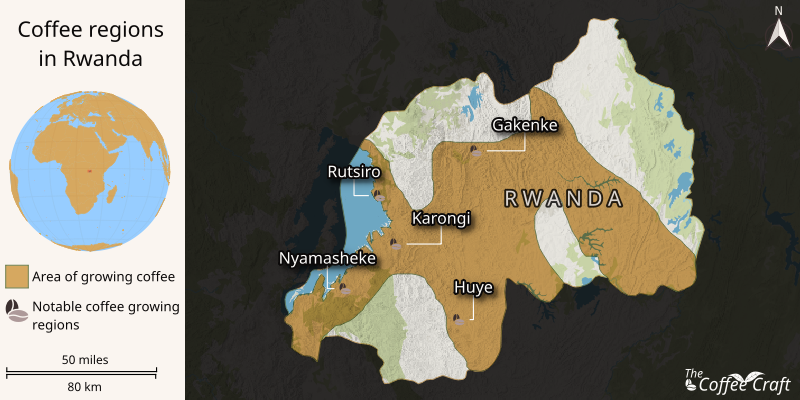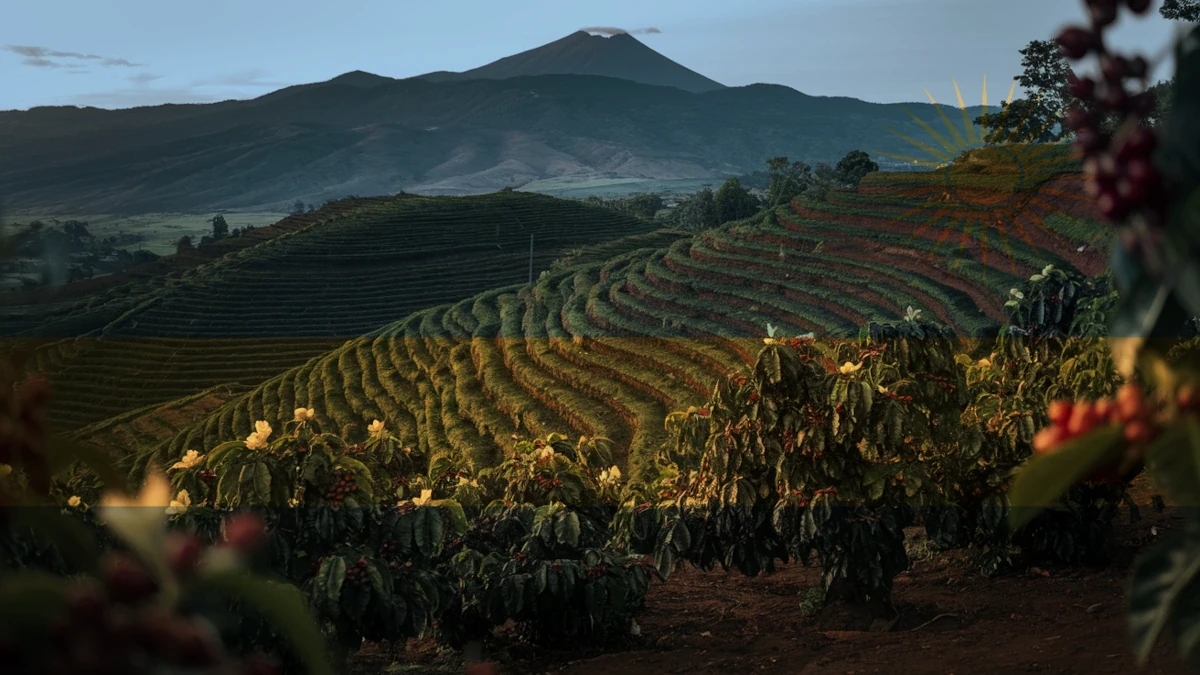Nestled in East Africa’s heart, Rwandan coffee tells a story of resilience, cultural significance, and exceptional flavor. Known for its high altitudes, rich volcanic soils, and vibrant taste profiles, Rwanda has become a leader in specialty coffee production. In this article, we’ll explore the coffee of Rwanda, diving into its history, key growing regions, unique flavor profiles, and the challenges shaping its global recognition.
Table of Contents
A Rich History of Coffee in Rwanda
Colonial Introduction and Challenges
The journey of coffee in Rwanda began in 1904 when German missionaries introduced the first coffee plants. However, widespread cultivation didn’t take hold until Belgian colonial rule after World War I. The Belgians enforced mandatory coffee farming, prioritizing quantity over quality. This led to high production levels but lower-quality coffee, which stifled Rwanda’s potential on the global stage.
Post-Genocide Recovery
The 1994 Rwandan genocide devastated the country’s economy and its coffee industry. Thousands of farmers were affected, and production plummeted. However, through foreign aid and government initiatives, the coffee sector was reborn. Efforts shifted toward producing high-quality specialty coffee, emphasizing collaboration and community rebuilding.
Rwanda’s Specialty Coffee Renaissance
Today, Rwanda shines as a beacon in specialty coffee production. The rise of washing stations has revolutionized processing, ensuring beans meet premium quality standards. Rwanda has also hosted the Cup of Excellence, a prestigious global competition showcasing the country’s finest beans.
Key Coffee-Growing Regions in Rwanda
Rwanda’s diverse landscapes and favorable climate give rise to unique coffee-growing regions, each contributing distinctive flavors to its coffee.
1. Nyamasheke: Fruity and Bright
- Location: Along the shores of Lake Kivu
- Altitude: 1,600–2,200 meters
- Flavor Profile: Bright acidity with notes of red apple, berries, and citrus.The high altitudes and volcanic soils of Nyamasheke create complex, fruit-forward coffees that are globally celebrated.
2. Gakenke: Floral and Citrus
- Location: Northern Province
- Altitude: 1,700–2,100 meters
- Flavor Profile: Floral aromas with vibrant acidity and hints of citrus.Gakenke’s coffees are known for their delicate, aromatic characteristics that appeal to refined palates.
3. Other Notable Regions
- Rubavu: Sweet and fruity with hints of chocolate.
- Karongi: Juicy and crisp with floral and citrus notes.
- Huye: Naturally sweet with stone fruit flavors like peaches and plums.

Unique Flavor Profiles of Rwandan Coffee
Signature Characteristics
Rwandan coffee is celebrated for its vibrant flavors and floral, fruity undertones. Expect tasting notes of red apple, grape, and berries, balanced by a bright and lively acidity.
Bourbon Varieties and Their Impact
Rwanda’s coffee is predominantly derived from Bourbon tree varieties, including Mibirizi and Jackson. These varieties contribute to the rich depth and complexity of Rwandan coffee, making it a favorite among specialty coffee connoisseurs.
Challenges and Innovations in Rwanda’s Coffee Industry
Addressing the “Potato Defect”
A unique challenge for Rwanda is the potato defect, caused by a bacterium that produces a raw potato-like aroma in some beans. To combat this, farmers and researchers are innovating with improved sorting techniques and education programs.
Sustainability and Growth
Rwanda’s coffee industry is committed to sustainable practices. Efforts include addressing soil depletion, reducing transportation costs, and empowering farmers with better access to resources and training.
Why Rwandan Coffee Stands Out Globally
- Quality and Consistency: Rwanda’s focus on specialty coffee ensures a high-quality cup.
- Cultural Significance: Coffee is a cornerstone of Rwanda’s economy and community rebuilding.
- Global Recognition: Hosting events like the Cup of Excellence has positioned Rwanda as a leader in specialty coffee.
Conclusion
Rwandan coffee is more than just a drink; it’s a testament to the country’s resilience, innovation, and commitment to quality. From the bright, fruity coffees of Nyamasheke to the delicate floral notes of Gakenke, Rwanda offers an unmatched diversity of flavor. Whether you’re a coffee aficionado or a casual drinker, exploring the coffee of Rwanda is a journey worth taking.
